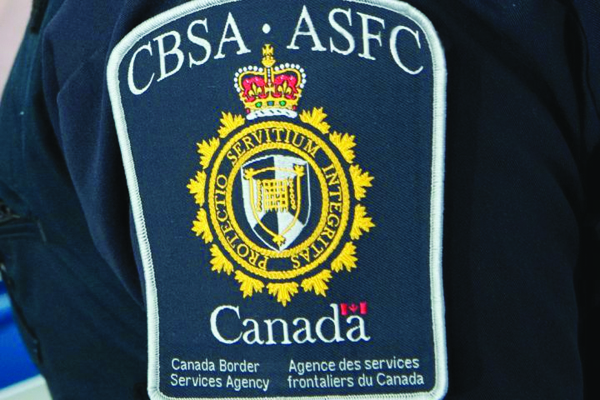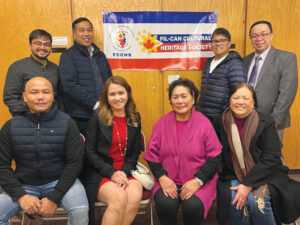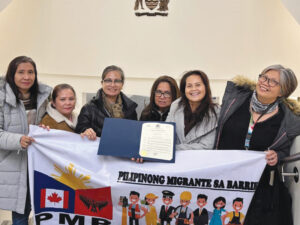Tinig Migrante by E. Maestro
Very little is known about Project Guardian of the Canada Border Services Agency (CBSA). Started in January 21, 2014, this pilot project operates in the Pacific Region (BC and the Yukon) and basically targets foreign caregivers in its task to investigate alleged violations by caregivers under the caregiver program.
An Embassy news article two years ago quoted Chris Schwartz, an inland enforcement officer with CBSA, as saying that the Project Guardian has the “mission of protecting Canada’s coveted Live-in Caregiver Program (LCP) from the abuses in the form of fraud, misrepresentation, conditions violations, etc.” He also said that “Project Guardian is here to “Guard” those families, and the integrity of the Live in Caregiver Program itself from abuses.”
According to a recent document released under the Access to Information Act, from January 2014 until October 2015, Project Guardian investigated 38 cases, arrested 15 caregivers, made 3 removals out of 18 removal orders and has 4 cases still pending admissibility hearings. Five (5) caregivers chose voluntary departures. There were 7 total referrals to its Criminal Investigations Section (CIS) and zero prosecutions by CIS.
In a press conference last March 7, Natalie Drolet, Executive Director of the West Coast Domestic Workers Association (WCDA) said that during these raids, the caregivers are arrested on the spot, their passports taken, caregivers detained and ordered to attend hearings. NDP Provincial Opposition Spokesperson on Immigration and TFWs, MLA Mable Elmore declared that Project Guardian “should be cancelled and provincially, Premier Christy Clark and the BC Liberal Government need to ensure employers are not violating Employment Standards legislation.
Migrante BC believes that Project Guardian targets domestic workers who already are in a problematic situation in the caregiver program. Why do we say problematic? Because of the systemic racism and discrimination inherent in the features of the caregiver program.
The caregiver program brings domestic workers into Canada with temporary status under conditions that leave them vulnerable to exploitation by employers and recruiters. These are the tied work permits, the “4 years in, 4 years out” rule of mandatory removal and the very difficult pathway to permanent residency that make their work precarious.
Caregivers come to Canada on work permits tied to their specific employers who are listed on their permits. This means that in the event that the caregivers are let go, or when they leave their employers for various reasons which include abuse, no overtime pay, long working hours and other violations of employment standards, these caregivers would need to immediately seek new employers (willing to pay $1000 for a LMIA) and apply for new work permits.
The waiting time for the paperwork can take half a year or more. In that waiting time, caregivers are forbidden to work, period. Caregivers are also aware that their stay in Canada is only limited to 4 years, and if they have not gotten their Permanent Residence status within that time, they would need to leave Canada and not come back until after another four years.
Changing employers is extremely difficult for caregivers. Changing jobs may jeopardize the ability of caregivers to obtain landed status within the time frame demanded by the government. Migrante has seen caregivers willing to endure terrible working conditions in order to finish their program; this makes it easy for bad employers to exploit these caregivers who do not have the “mobility” to leave abusive or unjust/unfair employers.
For caregivers who find themselves in that space of looking for a new employer and applying for a new permit, Canada has made it a crime if they work so they can eat and have a place to stay. Would the Canadian government rather have caregivers steal for their food and sleep on the streets instead?
We know and have seen how there is very little information given to domestic workers about their legal and labour rights, thus, workers can be very fearful about dealing with problematic employers, never mind dealing with immigration and police officers.
Where is the solid data on the allegations that caregivers abuse the program by arriving here and immediately quitting to work for other families? How many “bad apples” does Manuela Hersch of the Association of Caregiver & Nanny Agencies in Canada have in her basket to back up the allegation that caregivers walk away from families without working for them?
Scholarly research, case intakes by service providers and community groups, and testimonials from caregivers themselves show that it is the caregivers who find themselves in precarious and vulnerable work situations and in actual and potential abuse from their employers. This question begs to be asked very loudly: Who is protecting the “integrity of the program” by running after abusive employers? Natalie Drolet of the WCDWA highlighted the general need for the Canadian government to respect the women who provide essential caregiving work by protecting their rights instead of unjustly targeting them.
When Project Guardian targets caregivers, it raises an important issue when seen from the perspective that the caregiver program is highly populated by women, and highly dominated by women from the Philippines. Is this gender-based discrimination? Is this “racial profiling”? Is Project Guardian targeting the Filipino community?
Canada does not need a guest worker program; rather we need an environment where genuine labour shortages are filled by workers with full and equal labour rights and a path to citizenship. We need an immigration policy that is fair to all, including the caregivers who care for our children and our elderly loved ones.
As I write this, women are gearing up to celebrate International Women’s Day in many parts of the world. On this day most especially, all of us should recognize that caregivers are workers, that the caregiving and domestic work that they do is work.
What do we want?
We want a stop to Project Guardian.
We want open work permits, not tied work permits, to make it easier for migrant workers to move between jobs.
We want the elimination of the mandatory removal after four (4) years and not being allowed to come back until after four years.
We want landed status upon arrival for migrant workers.
We want the review of the TFWP by the Liberals, announced Feb 17th, to be transparent and inclusive in that it brings in the migrant workers’ voices in that conversation.
No! to Project Guardian!








